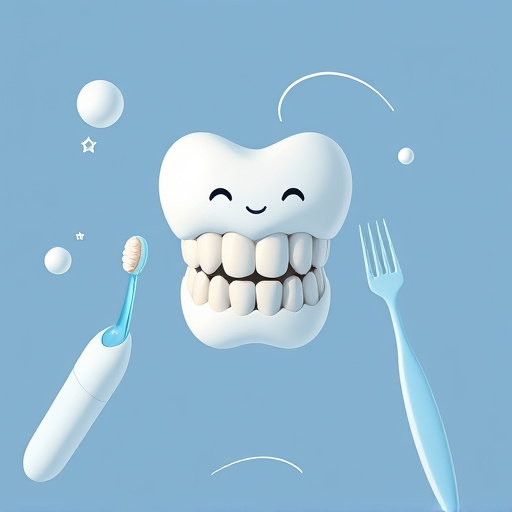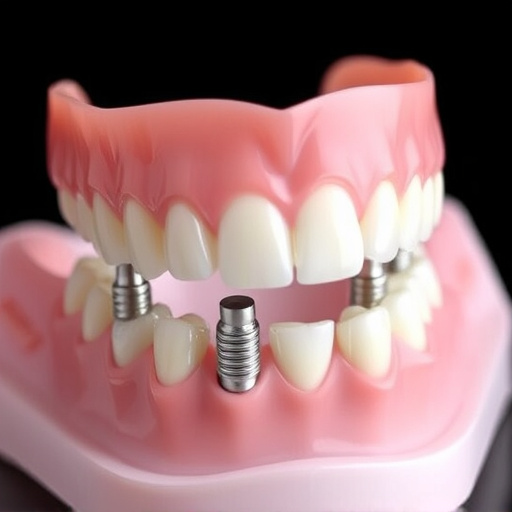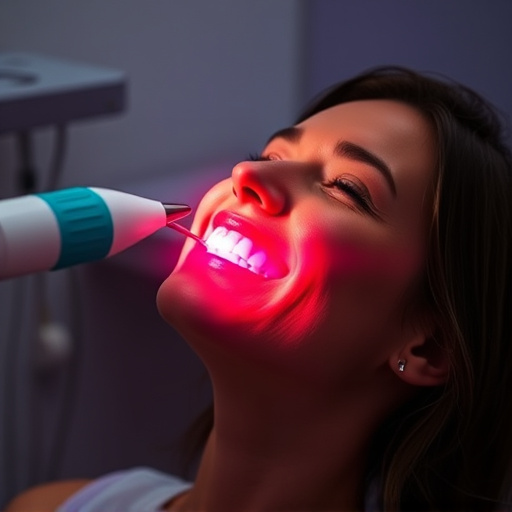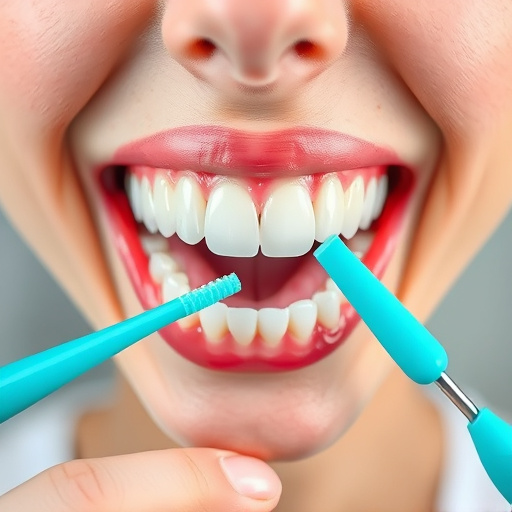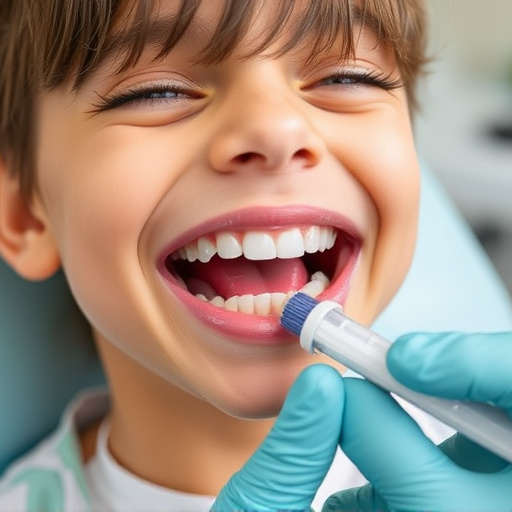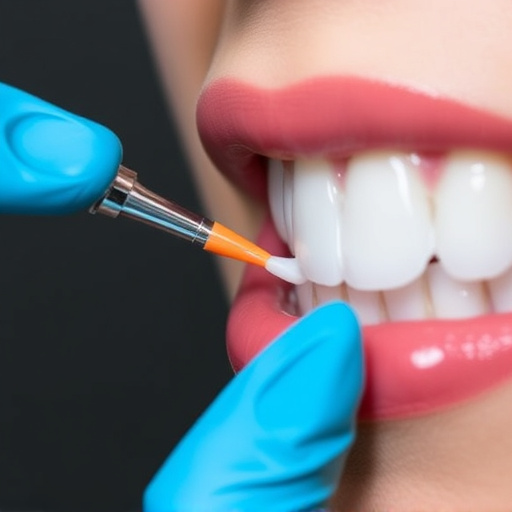Dental anxiety is common in children and teens, caused by fears related to dental procedures. Early intervention through behavioral therapy, relaxation techniques, positive reinforcement, and explaining procedures simply is crucial. Gradually exposing them to simple procedures in a kid-friendly, calming dental environment with trained staff can significantly reduce anxiety. This approach makes future visits more comfortable and fosters positive oral health experiences for young people.
Dental anxiety can significantly impact a child’s overall well-being, making it crucial to understand and address this common issue. This article explores effective strategies for managing and overcoming dental anxiety in children and teenagers. From identifying the root causes to choosing the right dental care environment, we provide insights into treating dental anxiety holistically. Discover practical tips and expert advice to create a positive dental experience for young patients, fostering good oral health habits that will last a lifetime.
- Understanding Dental Anxiety in Children and Teenagers
- Strategies for Managing and Overcoming Dental Anxiety
- Choosing the Right Dental Care Environment for Young Patients
Understanding Dental Anxiety in Children and Teenagers

Dental anxiety is a common issue among children and teenagers, often stemming from fear or discomfort associated with dental procedures. This anxiety can manifest as anything from mild nervousness to severe panic attacks, making it challenging for young individuals to receive the dental care they need. Recognizing and understanding these feelings are crucial steps in providing effective dental anxiety treatment. Children and teenagers may have specific concerns, such as needles, the noise of dental equipment, or feeling trapped in the dental chair, which can contribute to their anxiety.
By addressing these fears early on, dental professionals can foster a positive relationship with young patients, ensuring they receive regular check-ups and necessary treatments without undue stress. Dental anxiety treatment for children and teenagers often involves techniques like behavioral therapy, relaxation exercises, and positive reinforcement. Additionally, explaining procedures in simple terms and allowing parents or guardians to accompany their children can significantly alleviate anxiety. For more complex issues, such as severe tooth decay requiring cosmetic dentistry or dental implants, or cases where a child needs extensive tooth repair, specialized care and support are essential to ensure the best possible outcome while minimizing anxiety.
Strategies for Managing and Overcoming Dental Anxiety
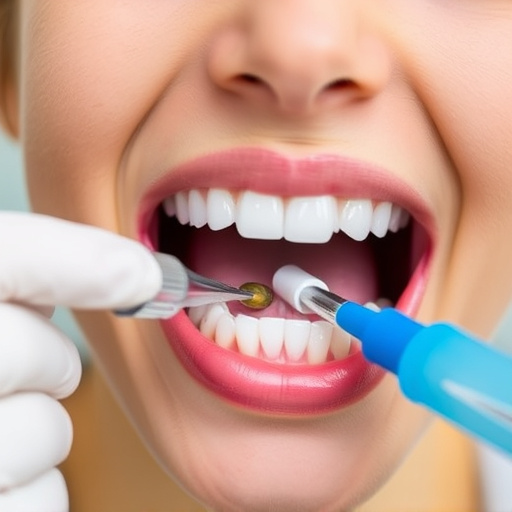
Managing dental anxiety is a crucial step towards ensuring children and teenagers have positive experiences with their oral health. One effective strategy is gradual exposure. Start by explaining simple procedures in age-appropriate language, then slowly introduce more complex treatments over time. This desensitizes them to various dental environments and procedures, making future visits easier.
For instance, begin with a checkup without any treatment, then progress to cleaning, and gradually move towards more invasive procedures like fillings or wisdom tooth removal (cosmetic dentistry). Combining this with positive reinforcement, such as offering rewards for brave behavior, can further alleviate anxiety. Additionally, teaching relaxation techniques, deep breathing exercises, or even providing a comfort item like a favorite toy or blanket during the appointment can make dental visits less daunting.
Choosing the Right Dental Care Environment for Young Patients

Creating a comfortable and kid-friendly dental care environment is paramount when addressing dental anxiety in children and teenagers. A calm, welcoming space can significantly reduce stress levels and make dental visits more pleasant experiences for young patients. Consider incorporating colorful decorations, playful furniture, and even educational tools to engage kids and distract them from their fears. The goal is to make the dental office feel like a safe haven rather than a source of anxiety.
When choosing a setting, prioritize practices that offer specialized services tailored for pediatric patients. Look for dentists trained in managing dental anxiety, as they can employ techniques such as relaxation music, storytelling, or even virtual reality to help children cope. Additionally, ensuring the staff is adept at communicating with young individuals fosters an environment of trust and understanding, making it easier for teenagers to express their concerns openly.
Addressing dental anxiety in children and teenagers is a multifaceted approach that involves understanding their unique fears, employing effective management strategies, and creating a supportive dental care environment. By implementing these methods, parents, caregivers, and dental professionals can significantly improve young patients’ experiences, fostering healthier oral care habits for life. Effective dental anxiety treatment not only eases the immediate discomfort but also paves the way for a positive relationship with dentistry, ensuring better overall oral health.








